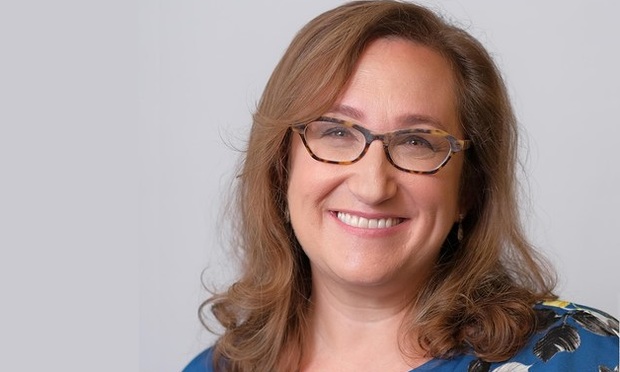UK GCs set out diversity commitment for law firms: improve or lose work
UK legal heads in talks to replicate US demands for more diversity at external advisers
January 31, 2019 at 08:29 AM
6 minute read
UK general counsel have thrown their support behind the open letter signed by 170 US legal heads warning law firms to do better on diversity or miss out on work, as talks over a similar initiative on this side of the pond get underway.
The letter, which was signed by GCs and chief legal officers from a range of companies including Cable & Wireless, Heineken and Mozilla, said their companies would divert their "substantial" legal spend to firms that commit to diversity and inclusion.
While the signatories of the letter were primarily from the US in-house community, a growing number of high-profile UK GCs have now told Legal Week that they would also sign the letter, or support a comparable initiative led out of the UK, discussions over which have already begun.
Coca-Cola European Partners GC Clare Wardle and former Royal Mail GC Maaike de Bie – who is joining Easyjet as GC this March – both told Legal Week that they were aware of talks over a UK-led effort to commit law firms to improving diversity.
 Crown Estate GC Rob Booth (pictured right) was among those who said he would sign the letter. "I'd sign any document that is committed to finding a solution to improving diversity in the legal industry," he told Legal Week. "It is a massive opportunity missed if we don't recognise the value that diversity of thought can bring.
Crown Estate GC Rob Booth (pictured right) was among those who said he would sign the letter. "I'd sign any document that is committed to finding a solution to improving diversity in the legal industry," he told Legal Week. "It is a massive opportunity missed if we don't recognise the value that diversity of thought can bring.
"The issues raised by this letter should be front and centre in all of our minds and I am really pleased to see it raised with critical mass. It is incumbent on us as customers to not just sign letters like this, but also to measure diversity in our value chain where we can, share that information and to deliver consistency on the buyer side; even when doing the right thing for the long-term may conflict with short-term decisions."
Others to express their support for the letter include notonthehighstreet.com GC Kate Burns, Transferwise GC Jenifer Swallow, and National Grid global head of legal operational excellence Mo Zain Ajaz.
Swallow said: "The impetus for the US letter was specific to that market. I would support a similar initiative here that was responsive to the facts and landscape of the UK market.
"The UK statistics show [that] the fantastic increase in female lawyers practising law is not yet reflected at more senior levels in law firms. There is progress on gender equality in the UK profession, but it is slow – too slow. Keeping the imperative for progress high on the agenda for firms – and in fact for wider society – is super important, and the 170 US GCs' letter should certainly help achieve that."
"No one used to feel comfortable bringing up diversity as a requirement in panel reviews, but now I mention it every time"
Michelle Fang, chief legal officer of car-sharing company Turo, who spearheaded the letter, said she welcomed support from GCs around the world and and encouraged UK legal heads to either add their signature to the letter or create their own. "Either join our letter or start your own one – whichever one you believe will be more powerful," she told Legal Week. Those interested in joining the initiative can get in touch with her via LinkedIn.
"The plan from the start was to launch this letter publicly and then for each signatory to reach out to their law firms privately to let them know what their personal expectations are of them as legal advisers, she said. "That process has already started – so far, law firms have been supportive and have welcomed the letter."
Barclays head of commercial engagement Stephanie Hamon – who has taken a lead role on the bank's efforts to push its external law firms to improve diversity – acknowledged the power that clients can wield, describing the letter as "a great initiative".
"We have gone one step further than a statement and are trying to put it in practise by adding diversity and inclusion as one of the six pillars of expectations of law firms we have for our panel firms," she added.
Other GCs across the UK are pushing forward with similar efforts, and are increasingly using their influence to encourage greater diversity in private practice.
Talking about how she assesses law firm diversity when choosing external legal advisers, Swallow said she conducts scenario-based conversations with law firms during the tender process, and observes the way they interact with each other. She said: "From this, you can tell their level of respect and decency for one another."
 Pearson GC Bjarne Tellmann (pictured) also noted the importance of observing the relationship dynamics of the teams tendering for panel appointments. When listening to law firm pitches on diversity, he said he pays particular attention to body language and team interaction.
Pearson GC Bjarne Tellmann (pictured) also noted the importance of observing the relationship dynamics of the teams tendering for panel appointments. When listening to law firm pitches on diversity, he said he pays particular attention to body language and team interaction.
"One firm that really impressed us," he said, "brought in a junior associate and during the pitch asked them to explain why it's important for them to be in the team as well."
Burns added: "No one ever used to feel comfortable bringing up diversity as a specific requirement in legal panel appointments, but now I mention it every time."
Wardle said it is important law firms do not just turn up with a token ethnic or female team member – or treat any other forms of diversity in this way – but instead demonstrate diversity within their teams and how it adds value to them. She added law firms must illustrate the value of diversity even after the tendering process is finished – they must be able to "walk the walk after", and not instantly hand over the work to less diverse teams.
"The shift the legal world needs to take," said Tellmann, "is recognising that it's not just a good thing to do, but it's actually a smart thing to do, because teams make better decisions when they're diverse."
But while GCs are placing the onus law firms to improve, they also recognise the importance of getting their own houses in order. "We should also be doing something similar ourselves, said Tellman. "It can't be just us asking our legal advisers for better diversity, but should instead be a public pledge to strive for diversity in all legal departments."
Related: A black partner responds to GCs on law firm diversity.
This content has been archived. It is available through our partners, LexisNexis® and Bloomberg Law.
To view this content, please continue to their sites.
Not a Lexis Subscriber?
Subscribe Now
Not a Bloomberg Law Subscriber?
Subscribe Now
NOT FOR REPRINT
© 2025 ALM Global, LLC, All Rights Reserved. Request academic re-use from www.copyright.com. All other uses, submit a request to [email protected]. For more information visit Asset & Logo Licensing.
You Might Like
View All
Singapore Litigators Shift Competitive Landscape as Another Senior Duo Sets Up Own Shop

Squire Patton Boggs Hires 7-Lawyer Team to Beef Up ESG Practice in Brussels
2 minute read

Skadden, White & Case Guide Citigroup Demerger in Mexico
Trending Stories
- 1No Two Wildfires Alike: Lawyers Take Different Legal Strategies in California
- 2Poop-Themed Dog Toy OK as Parody, but Still Tarnished Jack Daniel’s Brand, Court Says
- 3Meet the New President of NY's Association of Trial Court Jurists
- 4Lawyers' Phones Are Ringing: What Should Employers Do If ICE Raids Their Business?
- 5Freshfields Hires Ex-SEC Corporate Finance Director in Silicon Valley
Who Got The Work
J. Brugh Lower of Gibbons has entered an appearance for industrial equipment supplier Devco Corporation in a pending trademark infringement lawsuit. The suit, accusing the defendant of selling knock-off Graco products, was filed Dec. 18 in New Jersey District Court by Rivkin Radler on behalf of Graco Inc. and Graco Minnesota. The case, assigned to U.S. District Judge Zahid N. Quraishi, is 3:24-cv-11294, Graco Inc. et al v. Devco Corporation.
Who Got The Work
Rebecca Maller-Stein and Kent A. Yalowitz of Arnold & Porter Kaye Scholer have entered their appearances for Hanaco Venture Capital and its executives, Lior Prosor and David Frankel, in a pending securities lawsuit. The action, filed on Dec. 24 in New York Southern District Court by Zell, Aron & Co. on behalf of Goldeneye Advisors, accuses the defendants of negligently and fraudulently managing the plaintiff's $1 million investment. The case, assigned to U.S. District Judge Vernon S. Broderick, is 1:24-cv-09918, Goldeneye Advisors, LLC v. Hanaco Venture Capital, Ltd. et al.
Who Got The Work
Attorneys from A&O Shearman has stepped in as defense counsel for Toronto-Dominion Bank and other defendants in a pending securities class action. The suit, filed Dec. 11 in New York Southern District Court by Bleichmar Fonti & Auld, accuses the defendants of concealing the bank's 'pervasive' deficiencies in regards to its compliance with the Bank Secrecy Act and the quality of its anti-money laundering controls. The case, assigned to U.S. District Judge Arun Subramanian, is 1:24-cv-09445, Gonzalez v. The Toronto-Dominion Bank et al.
Who Got The Work
Crown Castle International, a Pennsylvania company providing shared communications infrastructure, has turned to Luke D. Wolf of Gordon Rees Scully Mansukhani to fend off a pending breach-of-contract lawsuit. The court action, filed Nov. 25 in Michigan Eastern District Court by Hooper Hathaway PC on behalf of The Town Residences LLC, accuses Crown Castle of failing to transfer approximately $30,000 in utility payments from T-Mobile in breach of a roof-top lease and assignment agreement. The case, assigned to U.S. District Judge Susan K. Declercq, is 2:24-cv-13131, The Town Residences LLC v. T-Mobile US, Inc. et al.
Who Got The Work
Wilfred P. Coronato and Daniel M. Schwartz of McCarter & English have stepped in as defense counsel to Electrolux Home Products Inc. in a pending product liability lawsuit. The court action, filed Nov. 26 in New York Eastern District Court by Poulos Lopiccolo PC and Nagel Rice LLP on behalf of David Stern, alleges that the defendant's refrigerators’ drawers and shelving repeatedly break and fall apart within months after purchase. The case, assigned to U.S. District Judge Joan M. Azrack, is 2:24-cv-08204, Stern v. Electrolux Home Products, Inc.
Featured Firms
Law Offices of Gary Martin Hays & Associates, P.C.
(470) 294-1674
Law Offices of Mark E. Salomone
(857) 444-6468
Smith & Hassler
(713) 739-1250









